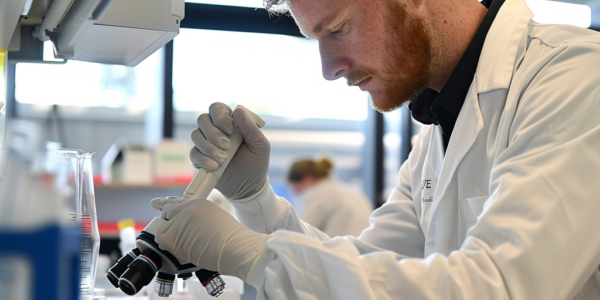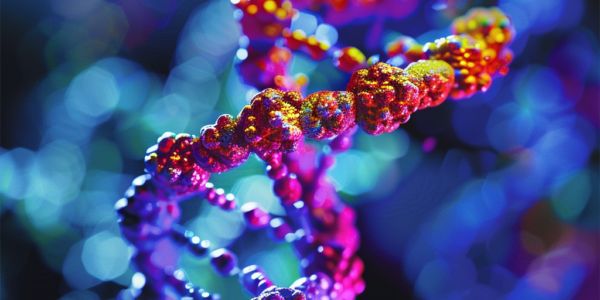Groundbreaking Research Project Investigates Stem Cell Mutations in Rare Blood Disorder
SKAN Research Trust, Wellcome Sanger Institute, and University of Newcastle collaborate on a groundbreaking research project to investigate early stem cell mutations in Langerhans Cell Histiocytosis (LCH). Led by Dr. Jyoti Nangalia, the study aims to analyze genetic mutations, understand disease progression, and identify early intervention strategies for effective management. This research endeavors to shed light on the complexities of LCH and potentially pave the way for personalized treatment approaches.
Genetic Cause of Intellectual Disability Identified in Groundbreaking Discovery
Researchers at the Icahn School of Medicine at Mount Sinai and other institutions have identified a genetic cause of intellectual disability impacting thousands globally. Published in Nature Medicine, the study reveals mutations in the non-coding gene RNU4-2 as a key factor. This groundbreaking discovery, made in collaboration with experts from the University of Bristol and others, offers crucial insights to enhance clinical diagnostic services for patients with neurodevelopmental disorders.
Johnson & Johnson’s Injectable Rybrevant Shows Promise in Extending Lives of Lung Cancer Patients
Johnson & Johnson’s injectable Rybrevant has shown promising results in extending the lives of lung cancer patients, with a 38% reduction in the risk of death compared to the intravenous version. The subcutaneous formulation demonstrated better overall survival, longer duration of response, and lower infusion-related reactions. With plans to file for FDA approval, J&J aims to gain a competitive edge in the market against AstraZeneca’s Tagrisso.
Epigenetic Mechanisms Found to Play Key Role in Cancer Development
Recent research published in Nature reveals that epigenetic mechanisms, specifically the disruption of Polycomb group proteins, can lead to cancer cell fate without genetic mutations. This challenges the traditional view of tumorigenesis and emphasizes the importance of understanding epigenetic dysregulation in cancer development and therapy.
Mutations Update in Brawl Stars
Discover the latest update in Brawl Stars with the introduction of Mutations, supercharged powers that enhance Brawlers’ attacks and abilities. Learn how Mutations are distributed among various Brawlers regardless of rarity and how to obtain them through Monster Eggs in the game.
New Gene Linked to Rare Lung Disease PCD Identified by Scientists at University of Leicester
University of Leicester scientists have identified a new gene, tubulin (TUBB4B), linked to primary ciliary dyskinesia (PCD), shedding light on the genetic mechanisms underlying this rare lung disease. The research, published in Science, reveals diverse clinical manifestations and the impact of mutations on tubulin protein function. This breakthrough has the potential to enhance rapid diagnostic techniques and inform new therapeutic approaches for PCD patients.
Elderly man in Amsterdam infected with Covid-19 for 613 days succumbs to virus
An elderly man from Amsterdam, immunocompromised due to previous stem cell transplants, spent a record-breaking 613 days infected with Covid-19, leading to around 50 virus mutations. Despite receiving multiple vaccinations, his immune system failed to produce measurable antibody responses, allowing the virus to evolve and evade immunity. This case highlights the risks of prolonged infections in vulnerable individuals and the importance of tailored approaches to managing such cases.
Newly Found Genetic Variant Defends Against Alzheimer’s Disease
Columbia researchers have discovered a genetic variant that reduces the odds of developing Alzheimer’s disease by up to 70% and may be protecting thousands of people in the United States from the disease. The discovery of the protective variant supports emerging evidence that the brain’s blood vessels play a large role in Alzheimer’s disease and could herald a new direction in therapeutic development.
ANU Researchers Make Groundbreaking Discovery in Psoriatic Arthritis Development
ANU researchers have discovered a genetic mutation responsible for the progression of psoriasis to psoriatic arthritis, offering potential advancements in diagnosis and treatment. This groundbreaking finding sheds light on the link between the IKBKB gene mutation and the development of psoriatic arthritis, providing hope for more targeted and effective therapies in the future.
New Genetic Mutation Linked to Severe Combined Immune Deficiency Disorder (SCID)
Researchers have identified a new genetic mutation linked to severe combined immune deficiency disorder (SCID), offering hope for new treatment options. SCID severely compromises the immune system, leaving individuals vulnerable to infections, and advancements in medical science have led to the potential of bone marrow transplants as a solution. This groundbreaking discovery sheds light on the complex genetic abnormalities that lead to SCID and highlights the ongoing need for research in this field.










